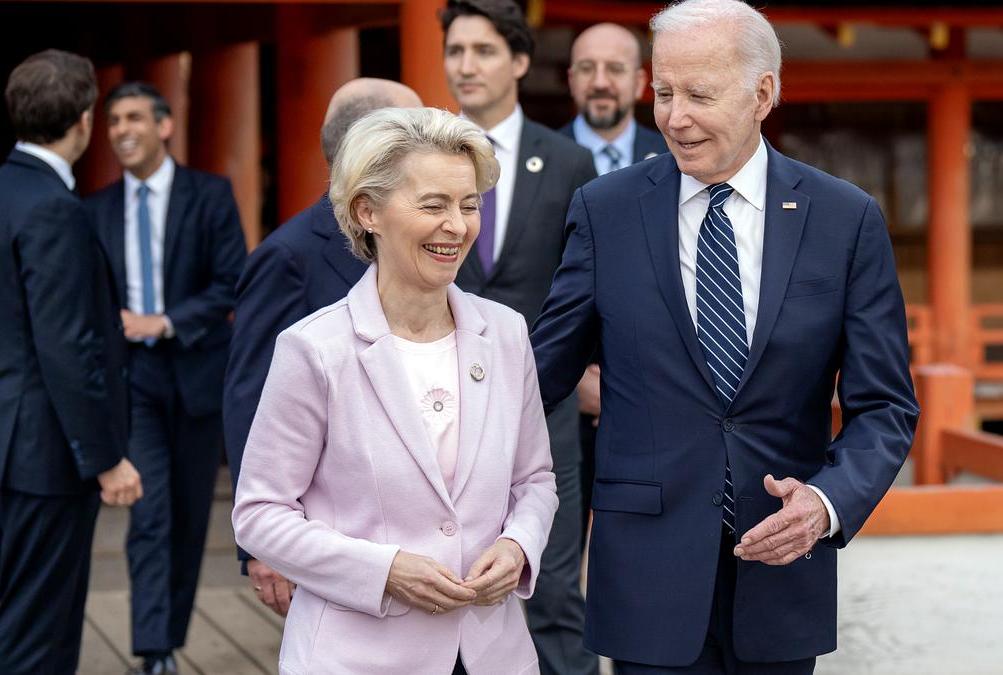Zhong Yin, Research Professor, Research Institute of Global Chinese and Area Studies, Beijing Language and Culture University
Jun 16, 2023
Amid the souring stew if China-U.S. relations, the growing distance between the countries’ armed forces stands out as particularly significant. A halt in military interactions indicates high tension. The good news is that the two both sides agree that engagement still counts.
Xie Feng, Chinese Ambassador to the United States
Jun 12, 2023
Some of you have recently joined us in celebrating the 100th birthday of Dr. Henry Kissinger. The centenarian has reminded us of how important peaceful coexistence between China and the United States is to humanity’s future. The history of the China-U.S. relationship has told us that both countries stand to gain from cooperation and lose from confrontation.

Wang Lei, Assistant Research Fellow, Institute of World Political Studies, CICIR
Sun Ru, Research Professor & Deputy Director, CICIR
Jun 08, 2023
Adjustments in European and American strategies may offer hope for a return to normal relations with China. The EU and U.S. should dump their political prejudices against China, take care of the common security of the world, try to remove risks and truly cooperate with China.

Zhao Tong, Fellow, Carnegie–Tsinghua Center for Global Policy
Jun 08, 2023
Managing uncertainties in China-U.S. ties will require the U.S. to accept all-around bilateral dialogue and exchanges between the two countries’ national leaders, experts, scholars and the general public. It needs to identify the true sources of significant disagreements and eliminate its misreading of China.

Stephen Roach, Senior Fellow, Yale University
Jun 08, 2023
Setting up a new joint secretariat could be key to keeping engagement between the world's leading economies on track.
Jun 06, 2023
Tensions between China and the West are being reinforced as assumptions about economic cooperation give way to national security rhetoric. Broad decoupling would be too difficult and costly for the West, while selectively reducing dependence on China in critical areas is seen as a more achievable goal.
Zhu Zhongbo, Director, Department for International and Strategy Studies, China Institute of International Studies
Jun 06, 2023
Legislators in Washington should cease and desist in their political maneuverings on Taiwan. It’s only making things worse. Undermining the political credibility of the United States and damaging the interests of the American people is a dubious distinction indeed.
Nathaniel Schochet, Analyst and CJPA Global Advisors
Earl Carr, Founder and Chief Executive Officer at CJPA Global Advisors
May 31, 2023
The Biden administration recently wrapped up two important state visits with President Yoon Suk Yeol of South Korea and President Ferdinand Marcos of the Philippines. The meetings signify that Biden is on a trek to improve and affirm ties with key Indo-Pacific countries, but it must continue this trend if the U.S. wishes to remain relevant in the region.
Brian Wong, Assistant Professor in Philosophy and Fellow at Centre on Contemporary China and the World, HKU and Rhodes Scholar
May 31, 2023
It’s no hidden secret that U.S.-China relations have been on the rocks in recent memory. Though both sides are willing to go through the motions of performative summits, the reality of policy taking shape on both sides belies the aggression coming from leadership from both countries.
Doug Bandow, Senior Fellow, Cato Institute
May 31, 2023
President Joe Biden has expressed optimism about the U.S.-China relationship. But regardless of whether his positive outlook is warranted, disengagement is “not the way out.” Washington and Beijing must find a new way to get along.
Back to Top

- China-US Focus builds trust and understanding between the U.S. and China through open dialogue among thought leaders.
- Our Offerings
- Topics
- Videos
- Podcasts
- Columnists
- Research Reports
- Focus Digest
- Stay Connected
-
Thanks for signing up!
- Get the latest stories from China-US Focus weekly.